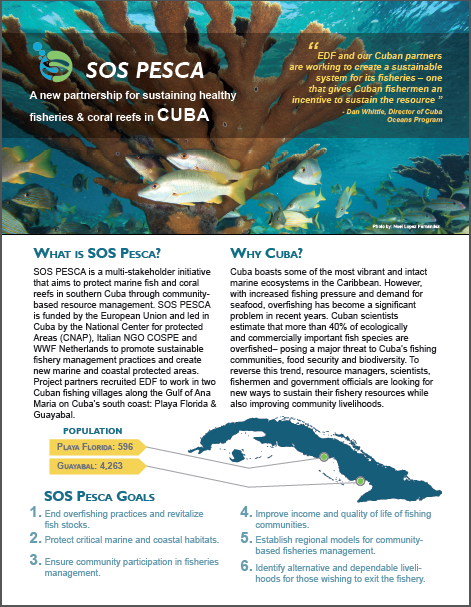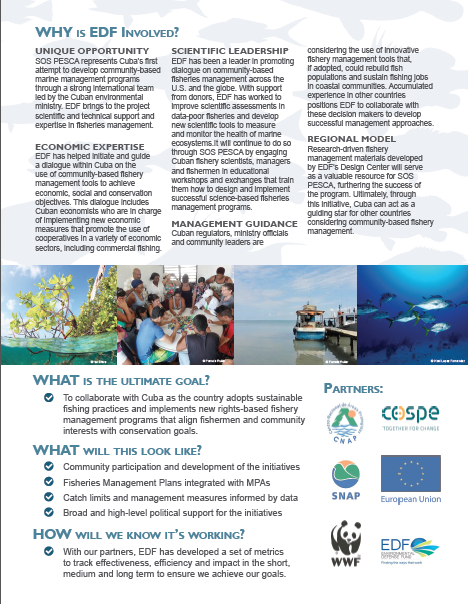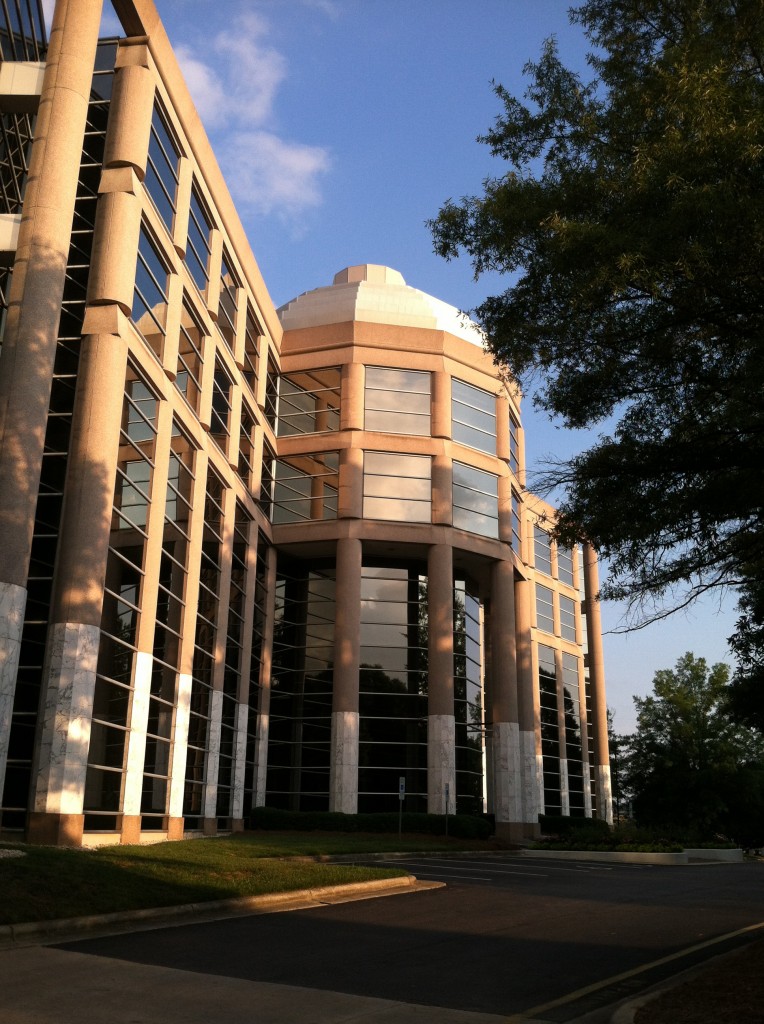I’ve had Cuba on the brain for the past 11 weeks.
Cuban cigars, Cuban Rum and Cuban baseball. Well, not quite.
No, as a Stanback Intern with the Environmental Defense Fund in Raleigh, I’ve been thinking loftier thoughts–thoughts about Cuban fisheries, Marine Protected Areas, shark conservation and Cuba-US environmental cooperation. That’s because I spent the first chunk of my summer creating communications materials like this info sheet to share with funders and program partners:


I completed several communications assignments like the one above in addition to writing several blogs and editing one op-ed for the Miami Herald arguing for better U.S.-Cuba cooperation on oil exploration and spill mitigation. My favorite blog to write was adapted from an interview I conducted with Cuban marine scientist and Pew Marine Fellow, Fabián Pina Amargós, for a blog post on EDFish about his experience growing up and working in Cuba. I was lucky enough to sit down with Fabián when he stopped by the office en route to D.C. I learned everything from his favorite Cuban eats to his thoughts on the effectiveness of marine protected areas.
This communication work was familiar territory for me, and though I still learned an immense amount about crafting a narrative that is politically sensitive to both sides of the coin one is flipping, I was also ready to tackle some more policy-oriented tasks to round out my internship experience.
That’s when my supervisor, Cuba Program Director Dan Whittle, proposed a new ambitious assignment. Could I help author a white paper on how the U.S. and Cuba could further their cooperation on environmental issues by using President Obama’s executive powers? Yes, of course! This assignment, along with Dan’s tutelage, introduced me to the nuanced art of white paper construction and was a great way to end my 11 weeks.
My other favorite part of the internship, was reading a book called Acorn Days: The Environmental Defense Fund and how it grew. It was given to us as part of our initiation, er introduction to EDF, when we first arrived and was written by EDF’s very first secretary, Marion Lane Rogers. Call me strange, as I think I’m the only intern to actually read the thing, but I devoured the prose about the birth and growth of EDF from the perspective of its sharp-witted birth mom. I would read it in the evenings and think about the legacy of the founding fathers (and mothers), and how it was still just as alive as I worked at my cubicle by day.
Towards the end of the book, Marion shares about a staff EDF Christmas Party towards the twighlight of “the acorn days” era.
“We shared the special camaraderie of those who are bonded by a mutual cause–a purpose–or call it what you will, a belief in something more important than themselves.”
Though I’m sure I can’t understand the full, sweet weight of that moment as felt by the original EDF family, I felt a similar sense of purpose and fulfillment working with the EDF staff this summer, as I had the year prior working alongside my colleagues at the Nicholas School. Among the many things I gained from my internship this summer was the confirmation that conservation work in some form or capacity is the only kind for me–that I’d found my place and my people among the practical, bipartisan, economics and science-driven staff of the Environmental Defense Fund.
Note: Check out this fun 60-second video my fellow interns and I created about our Stanback Internship with EDF Raleigh!


